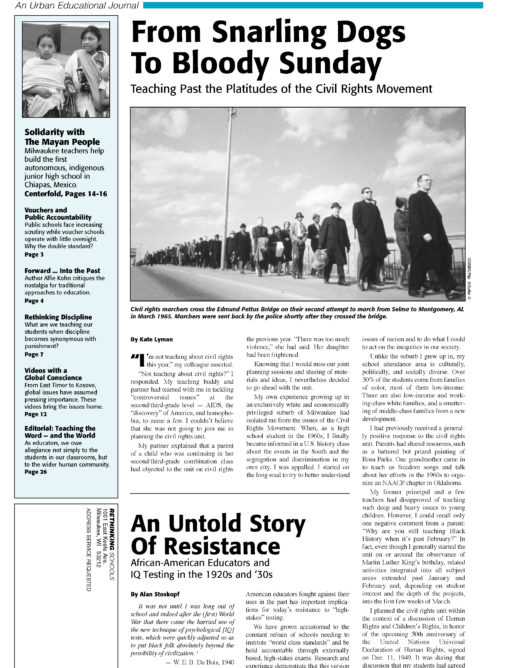Preview of Article:
Networking, Organizing, and Resisting
Portland-area teachers' group takes on issues ranging from standardized tests to teaching about globalization
What exactly is Portland Area Rethinking Schools (PARS)?
Part network, part support group, part organizing center, the group began in 1986 when several teachers decided to read education theory as a way of getting clearer about their classroom practice. These initial meetings provided a place to share thoughts on critical pedagogy and to problem-solve about curriculum and school politics.
Over the years, PARS has evolved into more than just a study group; it has become a collection of organizing efforts on school-wide, district-wide, and state-wide education issues. Teachers affiliated with PARS have reflected and organized, lobbied and testified, spoken and published around issues of tracking, tax cuts, school choice and vouchers, standards and assessment. PARS currently has a mailing/e-mail list of over 500, and it is not unusual for as many as 100 people to attend its meetings.
The group discusses education controversies, develops curriculum, and organizes to influence policy. It also sponsors nationally known speakers on key controversies. For example, it recently sponsored a series of talks by Monty Neill, the executive director of the Boston-based group FairTest, who spoke about accountability and standardized tests. Following Neill’s presentations, teachers and parents met in small groups to share experiences and brainstorm strategies for change.
PARS was initially organized by a group of teachers and professors that included Linda Christensen and Bill Bigelow, classroom teachers who are also editors of Rethinking Schools. While PARS has no formal affiliation with the Rethinking Schools journal, it operates within the same framework of promoting K-12 education reform grounded in equity, social justice, and quality education. And, like the Rethinking Schools journal, it advocates an activist approach.</p

